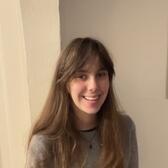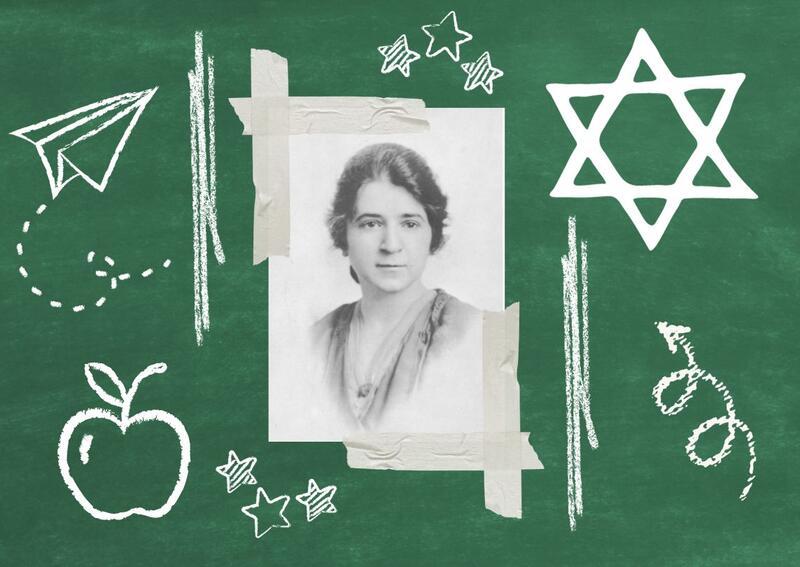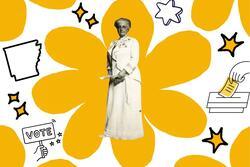Representing Perspectives in Wisconsin Across Generations
One Monday night per month, I barricade myself in my younger brother’s bedroom, pull on an exceptionally nondescript gray sweater (typically extracted from my mother’s closet), and position my computer on top of a wooden desk and two sturdy Jason Bourne novels. Just after the clock shifts to 5:58 PM, I enter my monthly Board of Education (BOE) Zoom meeting.
As the student representative to my school district's policy-making body, I’m tasked with ensuring the voices of my peers are considered in the political decisions and processes that shape our education system. My most exciting responsibilities include voting (often “aye,” sometimes “nay”), drawing upon conversations with diverse student groups to advocate for green energy initiatives, and squinting at budgetary figures with simultaneous determination and mild confusion.
My favorite component, however, of these lengthy BOE meetings, is hearing public input on district policies and operations. The first hour or so (out of three to four!) is dedicated to community testimonies. From data-driven health experts to earnest second grade students, the voices that take to the virtual podium in two-minute increments are as interesting as they are diverse.
I find these testimonies fascinating due to both their heterogeneity and their influence on Board decision-making processes. Board members refer to community speakers in their defense or opposition of policies, incorporate statistics mentioned by parents into their arguments, and motion to table policies that are questioned by community experts. This process of considering community perspectives pays off: when the board heeds diverse perspectives, their policies seem to receive less backlash from the district community.
However, the complete incorporation of these diverse perspectives into BOE policies has definite economic and systemic restraints. For example, despite persistent testimony from student environmental clubs, progress towards sustainability initiatives has been slow due to financial limitations. As a result, opposition to the BOE for failing to consider community preferences is common. These observations affirm the critical importance of amplifying nuanced, varied voices in political discourse.
Despite its limitations, I find this process to be an exciting demonstration of one of the most foundational elements of a representative democracy: pluralism.
The community testimonies that define my monthly BOE meetings offer an interesting juxtaposition with the extreme polarization that characterizes the current American political system. Overlap does exist in the ideological preferences of American voters in Democratic and Republican parties, and over 40% of Americans identify as independents. However, American politicians of the two dominant parties believe in and vote for disparate policy agendas. This trend of ideological extremes blossomed in the 1970s. Today, the majority of voters are left with a limited capacity to choose less polarizing candidates or to vote out politicians who do not accurately represent their views. This is often due to generally low primary voter turnout and the party affiliation requirements of closed primaries.
This polarization has created a political system defined by extremes. American voters are often left with a binary choice: vote extreme or don’t vote at all. I see this choice (or what often doesn’t feel like much of a choice) as a depressing violation of the United States' promise of representative democracy. The nation is stuck.
It feels as though there's little prospect of a truly representative government. In most of our political processes, voter populations cannot assert diverse and nuanced preferences. The progress-oriented inclusion of perspectives that I’ve observed in my BOE meetings is hard to find elsewhere, even though these perspectives are necessary for the sustainability and prosperity of both my school district and our nation.
Of course, a Wisconsin BOE overseeing 25,000 students is far less structurally complex than a national government system with 330 million constituents. However, the underlying principles of representative democracy that are intended to define both remain the same, and thus both require processes that represent diverse voices.
As I consider my BOE and the national government in parallel, striving to not feel discouraged by the lack of true representation within polarized systems, I find it empowering to look back at the incredible legacy of female suffragists, who did succeed in diversifying the citizens represented in political decision making. In particular, I look to Belle Fligelman Winestine, whose grassroots work led to progress in Wisconsin, Montana, and across the United States.
Winestine dedicated her life to the development of women’s rights legislation. She entered the suffrage movement as a journalism student at the University of Wisconsin-Madison (which is basically in my backyard!). There, she was selected by the State Headquarters for Woman Suffrage in Wisconsin to serve as the student representative to address a state legislature session. In 1914, Winestine contributed to the launch of the woman suffrage movement in Montana. She led suffragists in a public demonstration that culminated in street speeches. This work pushed women’s political demands to the forefront of public debate in Montana. That same year, Montana passed a women's suffrage amendment, becoming one of eleven states that granted women the right to vote.
Winestine worked at the local level and then the state level to achieve women’s suffrage. Similar activism by thousands of women across the country contributed to similar progress in other states, culminating in the 1919 passage and 1920 ratification of the Nineteenth Amendment to the United States Constitution.
From local to state to national progress, activists like Winestine were able to take immense steps towards a more representative democracy. This work reminds me that despite my disillusionment with national politics, representative governments at a local level – like the BOE I serve on – are proof of potential for change within our larger, polarized systems. The impassioned testimonies I hear each month in my Board meetings are not just a formality; they are representative democracy in its most basic form, and a reminder that potential for progress always exists. Through participating in representative local government, and studying examples of suffrage from the past, I can find hope for a future system that ensures every voice is heard.
This piece was written as part of JWA’s Rising Voices Fellowship.







